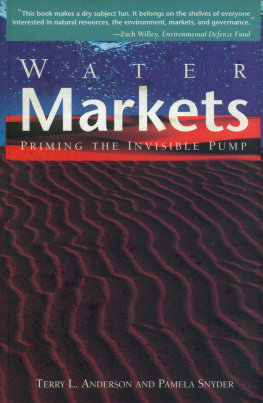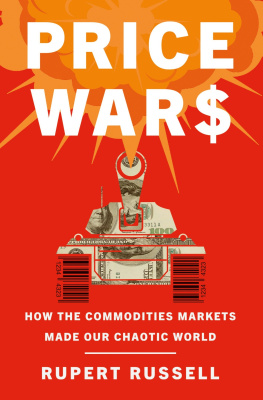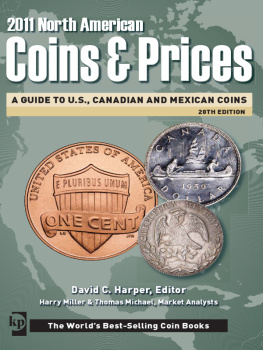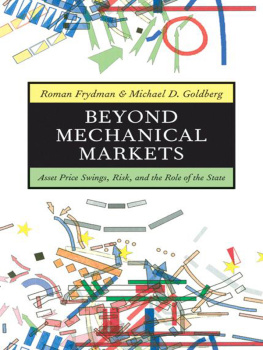Salvatore Carollo - Understanding Oil Prices: A Guide to What Drives the Price of Oil in Today’s Markets
Here you can read online Salvatore Carollo - Understanding Oil Prices: A Guide to What Drives the Price of Oil in Today’s Markets full text of the book (entire story) in english for free. Download pdf and epub, get meaning, cover and reviews about this ebook. year: 0, publisher: Wiley, genre: Science. Description of the work, (preface) as well as reviews are available. Best literature library LitArk.com created for fans of good reading and offers a wide selection of genres:
Romance novel
Science fiction
Adventure
Detective
Science
History
Home and family
Prose
Art
Politics
Computer
Non-fiction
Religion
Business
Children
Humor
Choose a favorite category and find really read worthwhile books. Enjoy immersion in the world of imagination, feel the emotions of the characters or learn something new for yourself, make an fascinating discovery.

- Book:Understanding Oil Prices: A Guide to What Drives the Price of Oil in Today’s Markets
- Author:
- Publisher:Wiley
- Genre:
- Year:0
- Rating:4 / 5
- Favourites:Add to favourites
- Your mark:
- 80
- 1
- 2
- 3
- 4
- 5
Understanding Oil Prices: A Guide to What Drives the Price of Oil in Today’s Markets: summary, description and annotation
We offer to read an annotation, description, summary or preface (depends on what the author of the book "Understanding Oil Prices: A Guide to What Drives the Price of Oil in Today’s Markets" wrote himself). If you haven't found the necessary information about the book — write in the comments, we will try to find it.
Salvatore Carollo: author's other books
Who wrote Understanding Oil Prices: A Guide to What Drives the Price of Oil in Today’s Markets? Find out the surname, the name of the author of the book and a list of all author's works by series.
Understanding Oil Prices: A Guide to What Drives the Price of Oil in Today’s Markets — read online for free the complete book (whole text) full work
Below is the text of the book, divided by pages. System saving the place of the last page read, allows you to conveniently read the book "Understanding Oil Prices: A Guide to What Drives the Price of Oil in Today’s Markets" online for free, without having to search again every time where you left off. Put a bookmark, and you can go to the page where you finished reading at any time.
Font size:
Interval:
Bookmark:
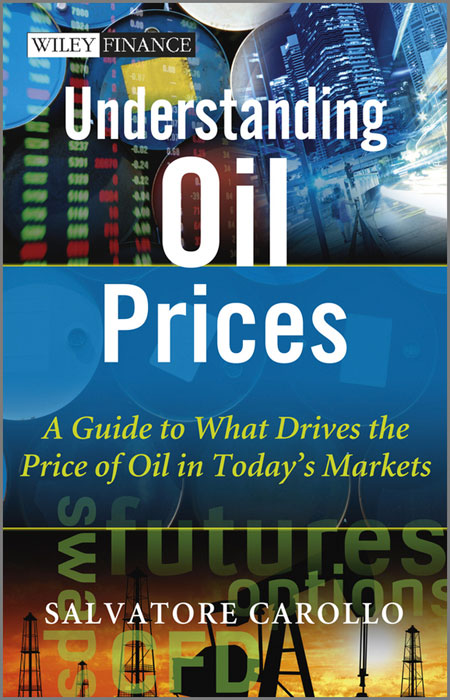
For other titles in the Wiley Finance series
please see www.wiley.com/finance
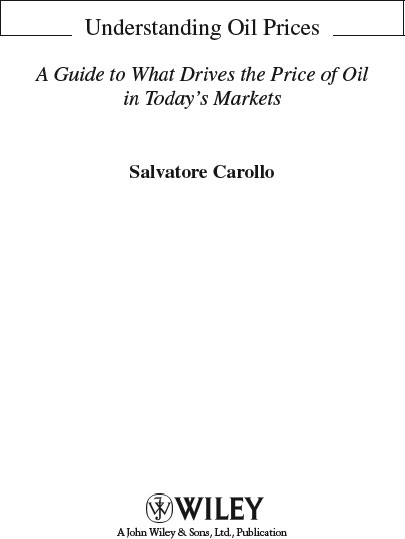
This edition first published 2012
2012 Salvatore Carollo
Registered office
John Wiley & Sons Ltd, The Atrium, Southern Gate, Chichester, West Sussex, PO19 8SQ, United Kingdom
For details of our global editorial offices, for customer services and for information about how to apply for permission to reuse the copyright material in this book please see our website at www.wiley.com .
The right of the author to be identified as the author of this work has been asserted in accordance with the Copyright, Designs and Patents Act 1988.
All rights reserved. No part of this publication may be reproduced, stored in a retrieval system, or transmitted, in any form or by any means, electronic, mechanical, photocopying, recording or otherwise, except as permitted by the UK Copyright, Designs and Patents Act 1988, without the prior permission of the publisher.
Wiley publishes in a variety of print and electronic formats and by print-on-demand. Some material included with standard print versions of this book may not be included in e-books or in print-on-demand. If this book refers to media such as a CD or DVD that is not included in the version you purchased, you may download this material at http://booksupport.wiley.com . For more information about Wiley products, visit us at www.wiley.com .
Designations used by companies to distinguish their products are often claimed as trademarks. All brand names and product names used in this book are trade names, service marks, trademarks or registered trademarks of their respective owners. The publisher is not associated with any product or vendor mentioned in this book. This publication is designed to provide accurate and authoritative information in regard to the subject matter covered. It is sold on the understanding that the publisher is not engaged in rendering professional services. If professional advice or other expert assistance is required, the services of a competent professional should be sought.
Library of Congress Cataloging-in-Publication Data
Carollo, Salvatore.
Understanding oil prices : a guide to what drives the price of oil in todays markets / Salvatore Carollo.
p. cm.(The wiley finance series)
Includes bibliographical references and index.
ISBN 978-1-119-96272-4 (hardback)
1. Petroleum productsPrices. 2. Petroleum industry and tradeHistory. I. Title.
HD9560.4.C37 2012
338.23282dc23
2011039266
A catalogue record for this book is available from the British Library.
ISBN 978-1-119-96272-4 (hardback) ISBN 978-1-119-96289-2 (ebk)
ISBN 978-1-119-96290-8 (ebk) ISBN 978-1-119-96291-5 (ebk)
A Sofia e Riccardo
Parmi d'aver per lunghe esperienze osservato
tale essere la condizione umana
intorno alle cose intellettuali,
che quanto altri meno ne intende e ne sa,
tanto pi risolutamente voglia discorrerne;
e che, all'incontro, la moltitudine delle cose conosciute ed intese
renda pi lento e irresoluto al sentenziare circa qualche novit.
It seems to me, after long experience
in observing the human condition
as regards intellectual matters,
that some persons, the less they understand and know,
all the more forcibly wish to hold forth;
and that, when we encounter something new,
the myriad things known and understood
make any judgement regarding it slower and less conclusive.
Galileo Galilei
Foreword
This book was conceived after a critical re-reading of the lectures I gave at the Eni Corporate University (ECU) for the Master MEDEA and for the Annual Seminar on oil marketing.
It is therefore the result not only of my elaborations and market models developed over the years to interpret the international oil market, but also of the discussions in the lecture hall with the students of the Master MEDEA and with the representatives of those producing countries who have taken part in the various editions of the Annual Seminar.
My thanks are due above all to these persons.
I also wish to thank Prof. Enzo Di Giulio, president of ECU, who desired to be present in these lectures and encouraged me to put the content of my presentations in book form.
Finally, I owe particular thanks to Dr Caterina Marmorato who, apart from helping me with notable professional commitment in the delivery of the lectures for the Master course, dedicated a good part of her free time for several months in preparing the technical annexes and in the task of editing.
Preface
The title of the book you are holding Understanding Oil Prices: A Guide to What Drives Oil Prices in Today's Markets brings to mind the telling of a story. Now, we know that for a story to be a good story it should meet three conditions: a) there are certain events to relate; b) these events run in order, that is, their sequence has some sense and, if possible, succeeds in holding the attention of the reader; c) there is a voice that narrates the story effectively and clearly. We feel that Salvatore Carollo's book satisfies all three of these conditions, and it tells a story of great interest to all of us.
The world of oil seems to be cloaked by a form of disparity in comprehension. Without oil, our entire existence as we know it today would not be possible. Despite the countless discussions regarding the oil peak and the end of the oil era, this fuel still represents, by far, the primary energy source. According to the last World Energy Outlook of the IEA, the proportion of oil as a source of energy stands at 34% against the 26% of coal and 21% of gas. According to the IMF's World Economic Outlook (WEO) reference scenario, in 2030 it will still be the primary source: 30% as against the 29% of coal and 22% of gas. Oil has, and continues to have, a profound influence on the lives of westerners and perhaps even more so on that of the peoples of the east. Certainly, it is a non-renewable source and this means that its days, in the long term, are numbered. But that is not the point here: the heart of the matter is that we are dealing with a material that shapes, changes, models, directs and configures the history of the world. And this is destined to carry on for a long time true even when the lusty flames of oil, ephemeral like all the things in this world, fade away in the great emptiness of time. Just as the Hellenistic or Roman worlds still influence our lives despite their decline consider for a moment our language in the same way, oil has given the world a development and geopolitical model, which is destined to last for the coming centuries. But this is the future. Today, rather, we are in the midst of the oil era. And yet, as we said earlier, there is a depressingly inadequate awareness of the significance of this essential source. This very book has come to your hands, reader, thanks to oil. Here we are not talking about a technical knowledge of the complex work of exploration, or oilfield production, or of the transport of crude oil across the oceans of the globe. Rather, we refer to those three words that millions, if not billions, of times stand out in the media: the price of oil. This expression, the content of which has such a powerful influence on our lives, is the synthesis of immense forces costs, decisions regarding investments and expenses, use of reserves, operations to cover risks, speculations, transactions, the policies of contracting companies, the policies of nations, oil companies and so on that interact to form it. At the same time, from the price itself stem innumerable chains of actions that influence variables of fundamental importance for the entire economy: the quotations of the dollar and the euro, the balance of payments, the price of gasoline and gasoil, the cost of electricity, the rate of inflation, employment and so on. Thus, the price of oil has a vast and forceful impact on our existence. And despite all this, the issue is not adequately discussed. Rather, it is mentioned, hinted at and at times journalists try to explain it; but beyond the inner circle of specialists no one talks much about it. And this circle, to tell the truth, is very restricted. This is a destiny that oil shares, unfortunately, with all the sources of energy. Just reflect on the scarce availability of courses in energy economics in universities across the world. A similar reflection applies to books on energy economics that are a rara avis on this planet, particularly if we compare them with the plethora of texts on environmental economics. Paradoxically, energy which represents perhaps the central axle around which the entire economy rotates is almost never an issue to dissect in our degree courses, in particular those regarding economics. Thus, tethered within the strict boundaries of a territory for specialists, the price of oil remains an abstruse, esoteric matter. When an attempt is made to pass from the esoteric to the exoteric, it is often done in a misguided, amateurish way. The media advances information that evokes horrific scenarios until last year some were predicting a price of around $200 per barrel they talk of an oil peak and the end of oil. Alternatively, OPEC is indicted as being responsible for the high prices, inflating its role disproportionately. In this way, public opinion tends to form biased opinions based on explanations that draw attention to just one main force, as the only one responsible for what happens.
Font size:
Interval:
Bookmark:
Similar books «Understanding Oil Prices: A Guide to What Drives the Price of Oil in Today’s Markets»
Look at similar books to Understanding Oil Prices: A Guide to What Drives the Price of Oil in Today’s Markets. We have selected literature similar in name and meaning in the hope of providing readers with more options to find new, interesting, not yet read works.
Discussion, reviews of the book Understanding Oil Prices: A Guide to What Drives the Price of Oil in Today’s Markets and just readers' own opinions. Leave your comments, write what you think about the work, its meaning or the main characters. Specify what exactly you liked and what you didn't like, and why you think so.





